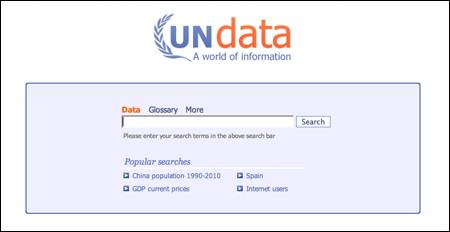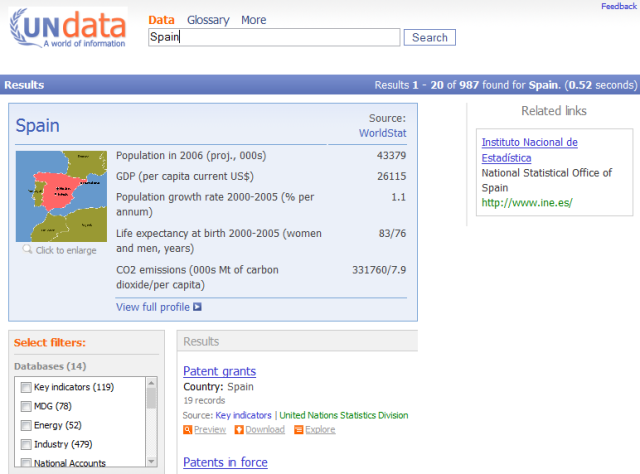The new site at UN Data allows anyone to access the United Nations Data Access System. This online, easy-to-use database was created by the UN in order to provide current, relevant, and reliable statistics to the whole world, for free. Using UN Data, you can access statistical information on populations, demographics, trade, commodities, agriculture, employment, the environment, industry, education, tourism, and much more.

For many people, the first source for data is a Google search or a Wikipedia entry, however educational institutions and news agencies generally frown on using data from these sources, especially considering some of the inaccuracies found on Wikipedia not too long ago.
But now, students, journalists, and everyone else can access data straight from the source – the actual statistics published by the UN.
Using UN Data
Underneath the search box on the homepage are a few popular searches, based on what users are searching for the most. You can either click on those or enter in your own keywords to begin.

For example, to see data about a country, you just enter in the country’s name and click “Search.” The search result will take you to a landing page where some general information about the country is provided, like population, GDP, life expectancy, etc. You can click the link to “view full profile” to get the full details of that country’s statistics.

To the left, is a box where you can apply filters to your search by specifying that you want to include or exclude certain information from your search.
Below the country’s profile are all the search results for that country. Each result has a “Download” link to download the data, but there is also a handy “Preview” link which will open a small window displaying the data, so you don’t have to navigate away from the page you’re on to see if that data is what you were looking for. Another link, “Explore,” allows you to delve into to related data sources around that topic.
You can do more than search for data on specific countries or regions, though. You can also search for data about global statistics, like greenhouse gas emissions or global solar production statistics (well, that’s what I looked up).
What’s great about the UN Data site is not just the ability to access this huge database of statistics (currently 55 million+ records), but the well-designed way that such massive amounts of data have been provided to the public. Anyone can use this database – school kids, techies, even mom and dad. This is one site that is definitely worth a look.









